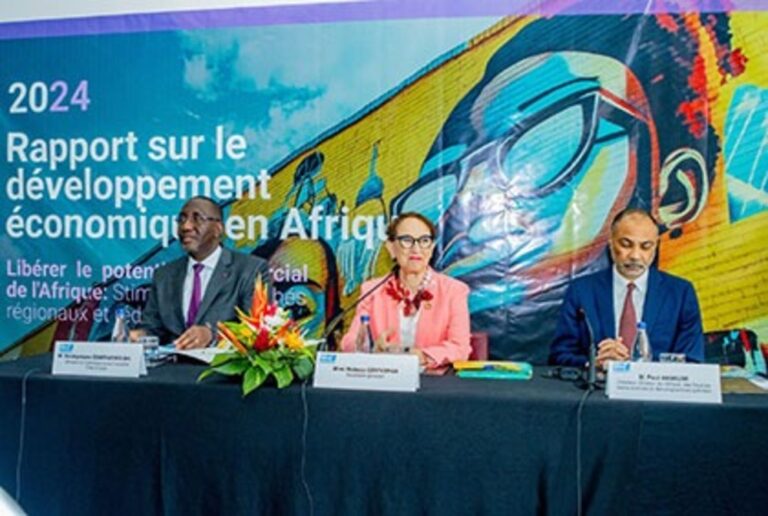Africa has the potential to become a major driver of global trade, according to the 2024 Economic Development in Africa Report released Monday by the United Nations.
Presented by UNCTAD Secretary-General Rebeca Grynspan and Ivorian Minister of Trade Souleymane Diarrassouba, the report draws attention to the economic opportunities offered by trade, investment, and regional integration.
Despite major challenges such as market volatility, high debt, and infrastructure deficits, the UN believes Africa can turn these vulnerabilities into strengths.
“These challenges present an opportunity to reshape the continent’s economic future,” said Rebeca Grynspan. According to her, “bold” policy reforms, strategic investments, and the full implementation of the African Continental Free Trade Area (AfCFTA) will enable Africa to emerge stronger, more resilient, and more competitive.
The report states that fully implementing AfCFTA could create a $3.4 trillion market. However, to unlock this potential, investments are needed in infrastructure, including the development of transport, energy, and ICT networks. It also calls for streamlining trade policies and customs procedures and supporting industrialisation through measures such as tax incentives and low-interest loans to boost regional and industrial production.
The report highlights several key areas for strengthening Africa’s economy, particularly the need to reduce dependence on commodity exports. Nearly half of African countries rely on raw materials for more than 60% of their export revenues, making them vulnerable to price fluctuations. Diversifying exports and promoting intra-African trade are priorities for stabilising income streams.
The UN also emphasizes the need to invest in infrastructure, particularly in transport, energy, and information and communication technology (ICT). These investments are crucial to reducing trade costs, which are currently 50% higher than the global average, especially for landlocked countries.
The report also addresses the situation of small and medium-sized enterprises (SMEs), which account for 80% of jobs in Africa. These businesses face numerous obstacles, including limited access to affordable financing and inadequate infrastructure. The document recommends improving access to credit, risk management tools, and regional supply chains to enhance their resilience.
ODL/te/lb/as/APA


